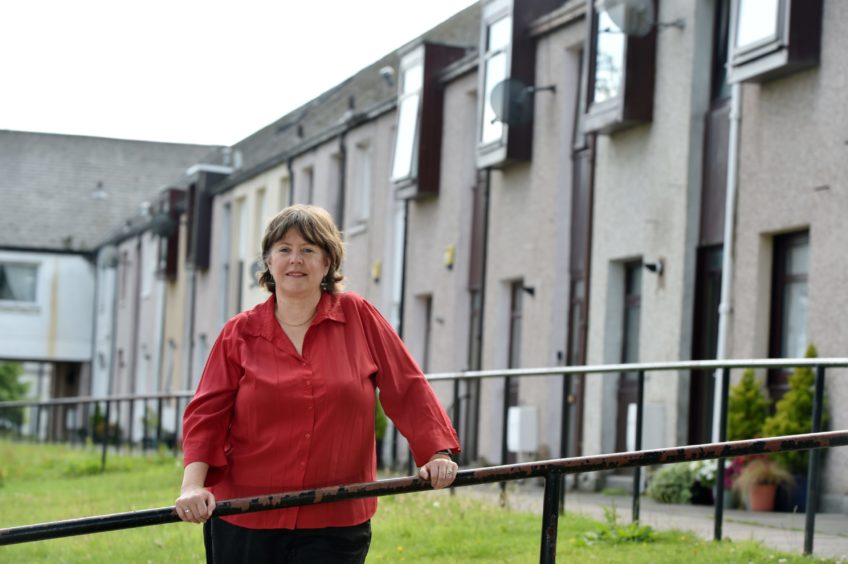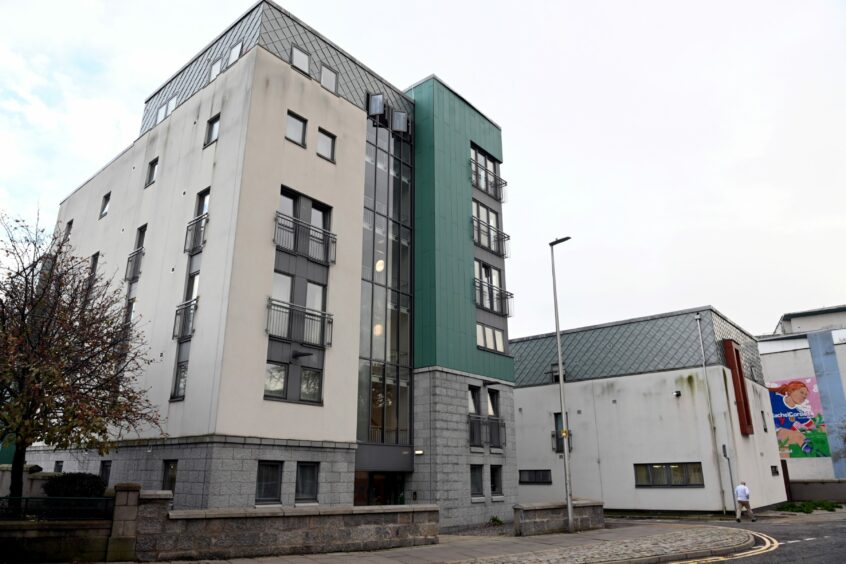Shelter Scotland has launched a blueprint aimed at tackling Aberdeen’s accommodation issues after a study showed one in three Scots are impacted by the housing emergency.
According to the housing and homelessness charity, Aberdeen “specifically” suffers from a lack of good quality, affordable homes.
They argue the social homes available are not the right size or where they are needed most, forcing people into more expensive and poor-quality homes that do not meet their needs.
The charity has launched the Aberdeen Manifesto for Housing to offer a practical response to this crisis.
People with lived experience of the issue and housing rights activists helped Shelter Scotland form the agenda to tackle the real issues faced by council tenants.
This blueprint from Shelter follows a recent YouGov study that shows one in 10 adult Scots feel their home harms their health. It was found that 11% of people were living in homes with “significant damp, condensation, and mould”.
The same poll of over 2,000 adults in Scotland found more than one in three were impacted by the housing emergency.
Meanwhile, Aberdeen City Council has urged Shelter to bring forward “constructive proposals” they can work on together.
Aberdeen ‘no exception’ to housing emergency
Michelle Harrow, Shelter Scotland interim Aberdeen community hub manager, explained that Aberdeen is “no exception” to the serious housing emergency across the country.
She said: “Acknowledging the crisis is one thing, acting is another. This Aberdeen Manifesto for Housing demands action from those who can address the combination of challenging housing circumstances seen in the city.
“Lasting solutions in Aberdeen can only be achieved with long-overdue collaboration between politicians, local authorities, housing providers and private landlords.”
Shelter Scotland is calling for more council housing to be built in the city and for empty properties to be utilised.
Council housing spokeswoman Councillor Sandra Macdonald said: “Providing good quality, affordable homes for our tenants goes to the heart of what Aberdeen City Council, as a responsible landlord, is all about.
“I acknowledge that there are challenges but it is extremely disappointing that Shelter did not seek to check their understanding of our housing provision before publishing their recent manifesto.”
Mrs Macdonald highlighted the council’s award-winning Empty Homes partnership that Shelter are involved in and their current plan to deliver 2,000 new homes by 2022.
The council recently launched plans to build more than 200 homes at the site of the old Kincorth Academy.
A minimum of 15% of the units will be accessible for those with additional support needs, and these will also be a dementia-friendly design.
Aberdeen City Council approach ‘not person-centred’
Aberdeen City Council’s approach to recovering rent arrears through the court system is detrimental to the health and wellbeing of tenants, according to the charity.
Shelter believes that this approach is not person-centered and forces tenants into further arrears, or even homelessness.
The charity claims it costs an estimated £24,000 to evict a single person with low support needs from the social sector into homelessness if they spend nine months in temporary accommodation.
In the manifesto, Shelter is appealing for the local authority to only raise evictions as a last resort and prioritise early intervention when rent arrears arise.
They also believe that Aberdeen City Council should be doing more to raise awareness of housing rights for those using their services.
Mrs Macdonald believes the initiatives the council has in place are “making a difference”.
The councillor said: “Aberdeen City Council’s homeless provision is sector leading, and has been commended. Huge efforts are made to accommodate the needs of people requiring temporary accommodation in line with Scottish Government guidance.”
Mrs Macdonald explained that the council stopped using B&Bs and hotels ahead of the Unsuitable Accommodation order coming into place this month.
She added: “Regular contacts are made by council officers and our partners with tenants. Throughout the pandemic, people have either had support in place or weekly welfare checks.
“And our ongoing transformation of housing services will ensure this continues for those in temporary accommodation and those in our hostel at West North Street.
“I would encourage Shelter to bring forward constructive proposals that we can work together on. That is the best way forward to help our current and future tenants in the city.”


